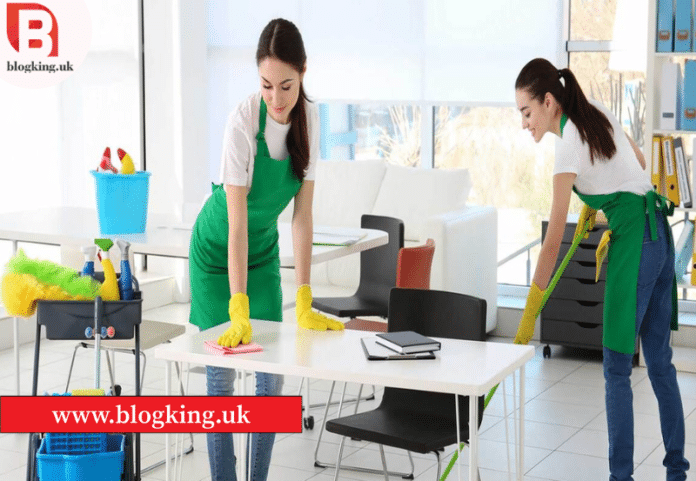You’ve decided to embark on the exciting journey of starting your own cleaning business! Congratulations! You’re about to turn your keen eye for detail and love of a spotless space into a thriving venture. But before you grab your favorite cleaning supplies and head out the door, there are a few essential steps to ensure you operate legally and smoothly. One of the most important is understanding what licenses are needed to start a cleaning business?
Fear not, fellow cleaning enthusiast! This comprehensive guide will equip you with the knowledge to navigate the world of permits and licenses. We’ll delve into the different types of licenses you might encounter, explore the factors influencing licensing needs, and provide tips on obtaining them. By the end, you’ll be ready to conquer the cleaning problem and watch your business sparkle!
Table of Contents
Why Licensing Matters for Cleaning Businesses
Obtaining the proper licenses might seem like a hurdle initially, but trust us, it’s an investment in your business’s success. Think of them as badges of honour – a signal to your clients that you’re a professional, responsible business owner. Here’s why licensing is crucial:
Legality
A license signifies that you’re operating within the legal framework of your state and local area. This protects you from potential fines or even closure.
Credibility
A valid license demonstrates to potential clients that you’re a legitimate business, fostering trust and confidence in your services.
Tax Compliance
Licenses often tie into tax registration, ensuring you fulfil your tax obligations.
Now that we’ve established the importance of licensing, let’s delve into the specifics!
The Essential License: Your Business Bread and Butter
Every cleaning business, regardless of size or specialization, needs a foundational license to answer what licenses are required to start a cleaning business. This license is the general business license. Issued by your local municipality (think city or county), this license authorizes you to operate your business legally within their jurisdiction. Obtaining it usually involves registering your business and paying a fee. The process is typically straightforward – most local government websites offer clear instructions and online applications.
Here’s a friendly tip: consider contacting your local Small Business Administration (SBA) office while you’re at it. They’re a fantastic resource for aspiring entrepreneurs, offering guidance on everything from licensing to business plans.
The Allure of a Local Business License: Catering to Your Community
In some areas, you might encounter an additional layer of licensing – the local business license. This license is specific to your city or county and might have slightly different requirements or fees than the general business license.
While obtaining these licenses might seem like a formality, there’s a hidden benefit: they connect you to your local business community. By registering your business, you gain access to local resources and networking opportunities that can be invaluable for your growth.
Exploring Additional Licenses: Gearing Up for Specialized Services
The essential licenses we’ve discussed so far are the cornerstones, but depending on the type of cleaning services you offer, you might need additional permits.
Vendor’s License
Do you plan on including cleaning supplies in your service packages? If so, you might need a vendor’s license. This allows you to collect sales tax on the cleaning products you sell to clients.
Contractor’s License
Envision yourself tackling carpet cleaning, floor restoration, or other more intensive services. A contractor’s license might be necessary. Requirements vary by state, so consult your licensing board for details.
Don’t Forget the Doing Business As (DBA) License: Establishing Your Brand Identity
This isn’t technically a license, but it’s an important step for businesses operating under a name different from the owner’s legal name. A DBA, a fictitious business name statement, allows you to register your chosen business name with the state. This is crucial for establishing brand recognition and ensuring legal protection for your business name.
State Variations: A Patchwork of Regulations Across the US
The United States, with its rich tapestry of states and localities, has a diverse regulatory landscape. What applies in California might be different in Texas. Therefore, it’s essential to research the specific licensing requirements for your state and local area.
Consulting Your State’s Resources
Most state governments have dedicated websites with information on business licensing. Look for the website of your state’s Department of Commerce or Secretary of State. These websites often provide comprehensive guides, online applications, and contact information for further assistance.
The Power of Professional Associations
Consider joining a professional cleaning association. These organizations offer valuable resources for their members, including guidance on licensing requirements and industry best practices.
Beyond Licenses: Insurance and Taxes – The Pillars of Financial Security
While licenses pave the legal path, a solid financial foundation is essential for your cleaning business.
General Liability Insurance

Imagine a scenario where a cleaning product accidentally damages a client’s expensive carpet. General liability insurance provides a safety net in such situations, protecting your business from financial losses due to property damage, bodily injury, or other unforeseen mishaps.
Worker’s Compensation Insurance
Workers’ compensation insurance is mandatory in most states if you plan on hiring employees. This insurance protects your employees in case of work-related injuries or illnesses, covering medical expenses and lost wages.
Understanding Business Taxes
Familiarize yourself with the different types of business taxes that apply to your cleaning business, such as income tax, sales tax, and self-employment tax. Consulting with a tax professional can be highly beneficial for navigating the tax landscape.
Frequently Asked Questions | What Licenses are Needed to Start a Cleaning Business
Here are some frequently asked questions regarding cleaning business licenses:
Do I need a federal license to operate a cleaning business?
In most cases, no. Licensing requirements are primarily regulated at the state and local levels.
What happens if I operate without a license?
Operating without the proper licenses can result in fines, penalties, and even business closure.
How much do licenses typically cost?
Fees vary depending on the license type and your location. General business licenses typically have lower costs than specialized licenses like contractor licenses.
A Licensed Path to Cleaning Success
Obtaining the necessary licenses might seem like a bureaucratic hurdle, but it’s crucial to establishing a successful and legitimate cleaning business. By understanding what licenses are needed to start a cleaning business and taking the time to secure the necessary permits, you’ll be setting your business up for a bright, sparkling future! Remember, a little preparation goes a long way, and with the knowledge you’ve gained from this guide, you’re well on your way to conquering the cleaning problem and turning your passion for spotless spaces into a thriving business venture. So, grab your cleaning supplies, embrace the challenge, and get ready to watch your business shine!





